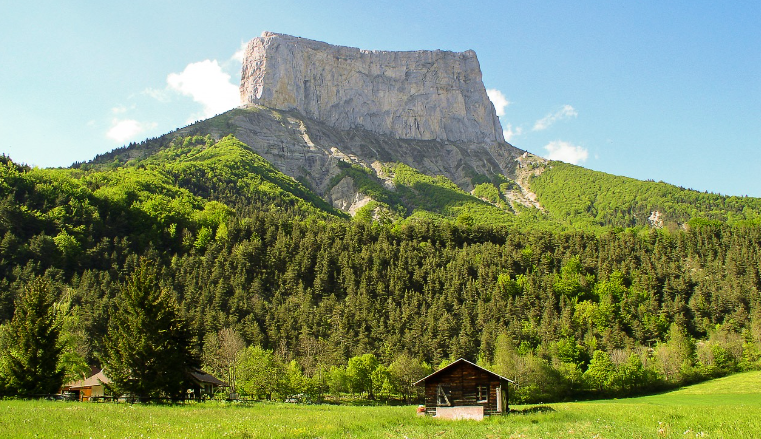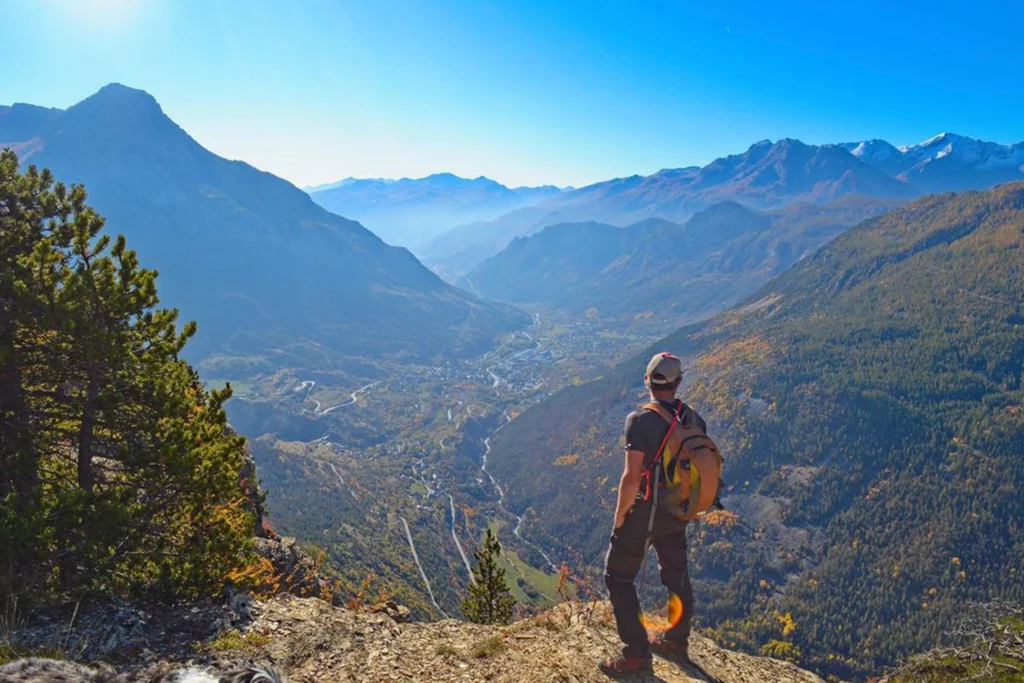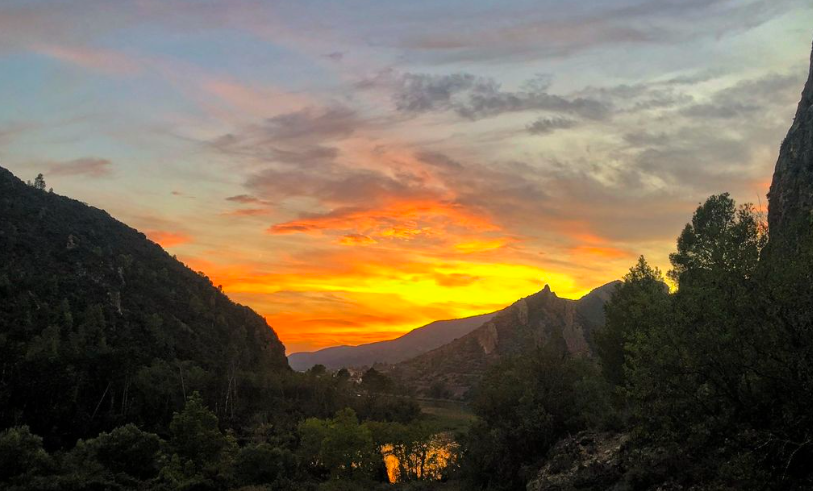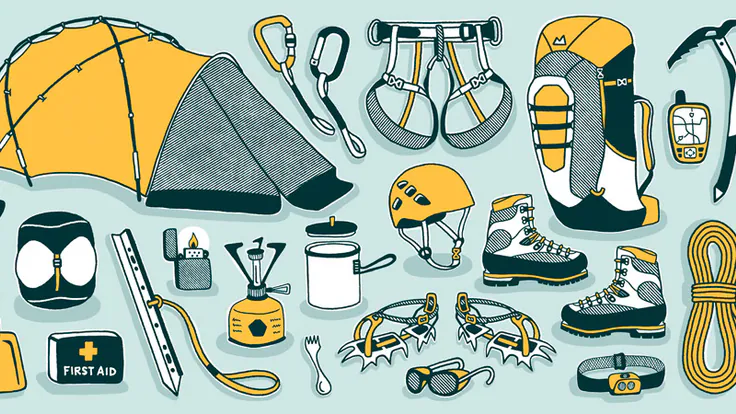Mountains have always captivated adventurers, tempting them with their towering peaks, untamed landscapes, and the tranquility of nature. However, as mountaineering gains popularity, the strain on these delicate ecosystems has grown more pronounced. Safeguarding mountain environments becomes crucial to maintaining their beauty, protecting biodiversity, and allowing future generations to revel in their beauty. In this guide by OGSO Mountain Essentials., we delve into sustainable practices that mountaineers can embrace to safeguard these invaluable ecosystems.
Join OGSO in embracing sustainable practices to safeguard mountain ecosystems for future generations!
Understanding Mountain Ecosystems:
Mountain ecosystems are among the most vulnerable and diverse in the world. They encompass a range of habitats, from dense forests at lower elevations to alpine meadows and empty summits. These ecosystems are home to unique flora and fauna, many of which are uncommon and cannot survive elsewhere. Additionally, mountains play a crucial role in regulating climate, acting as water towers that supply fresh water to millions of people.
Mountain ecosystems are characterized by steep gradients in temperature and humidity, which create distinct biological zones over short distances. For example, a single mountain can support evergreen forests, coniferous forests, alpine meadows, and glaciers. This diversity makes mountains hotspots for biodiversity. However, this same diversity makes them particularly sensitive to disturbances. Human activities, such as trampling vegetation, creating informal trails, and polluting water sources, can have far-reaching impacts on these environments.

Principles of Leave No Trace:
The Leave No Trace (LNT) principles are a set of guidelines designed to help outdoor enthusiasts minimize their environmental impact. These principles are especially pertinent to mountaineering:
1. Plan Ahead and Prepare:
When it comes to outdoor activities, preparation is essential. Studying where you intend to visit is important, comprehend the rules and regulations, and be ready for the weather and terrain conditions before starting your adventure. This proactive approach can significantly reduce the likelihood of making harmful decisions out of necessity or ignorance.
By planning, you can avoid crowded trails and campsites, which not only enhances your personal experience but also helps minimize your impact on the environment. Researching the area allows you to identify the best routes, identify potential hazards, and to choose the necessary gear and supplies. Understanding the regulations, such as permit requirements or restrictions on certain activities, ensures that you comply with the rules and regulations to protect natural resources.

Additionally, being prepared for the weather and terrain conditions can help you make informed decisions and adapt to changing circumstances. This may involve packing appropriate clothing, footwear, and equipment, as well as being aware of potential challenges, such as steep inclines, rocky terrain, or unpredictable weather patterns. By planning ahead, you can make more informed decisions and have a more enjoyable and responsible outdoor experience.

2. Travel and Camp on Durable Surfaces:
When exploring the great outdoors, it’s crucial to minimize your impact on the environment by traveling and camping on durable surfaces. This means sticking to established trails and campsites whenever possible, as these areas are designed to withstand the wear and tear of human activity.
This helps maintain the natural integrity of the landscape and prevents the trampling of fragile vegetation.
Durable surfaces, such as rock, gravel, dry grasses, or snow, are the best options for minimizing your impact.
Avoiding walking on delicate vegetation is essential, as the recovery process can take years. Even a single footprint can leave a lasting mark on the ecosystem. By sticking to established trails and campsites, you can enjoy the outdoors while preserving the natural environment for future generations.
This approach not only protects the landscape but also enhances your overall experience. Established trails and campsites are often designed to provide the most efficient and enjoyable routes, ensuring a safer and more comfortable journey. By respecting the land and following these guidelines, you can leave no trace and maintain the pristine beauty of the wilderness.
3. Dispose of Waste Properly:
Proper waste disposal is a crucial aspect of responsible outdoor recreation. It is essential to pack out all trash, leftover food, and litter, ensuring that the natural environment remains clean and undisturbed.
Human waste can pose a significant threat to the ecosystem if not disposed of properly. To minimize the contamination of water sources and the impact on wildlife, it is important to use established toilet facilities or pack out waste in portable containers. This approach prevents the introduction of harmful bacteria and chemicals into the environment, preserving the natural balance and reducing the risk of attracting wildlife.
By disposing of waste properly, you can help maintain the cleanliness and integrity of the outdoor spaces you visit. This not only enhances the experience for yourself and other visitors but also protects the delicate ecosystems that thrive in these natural areas.
Responsible waste management is a simple yet impactful way to minimize your footprint and ensure that the wilderness remains pristine for future generations.
4. Leave What You Find:
Preserving the natural environment is a fundamental principle of responsible outdoor recreation. This means leaving the landscape as you found it, without taking or altering any natural objects or features.
Refraining from collecting rocks, plants, or other natural items ensures that the ecosystem remains intact and undisturbed. These elements are an integral part of the natural landscape and play a crucial role in supporting the delicate balance of the environment.
Similarly, it is important to avoid altering the environment to create campsites or shelters. This includes avoiding the construction of new trails, the removal of vegetation, or the disturbance of the soil. Maintaining the natural state of the landscape preserves the integrity of the ecosystem and allows it to continue thriving.
By leaving what you find, you can ensure that the outdoor spaces you visit remain pristine and untouched for others to enjoy. This approach not only respects the natural environment but also fosters a sense of stewardship and appreciation for the wilderness.
5. Minimize Campfire Impact:
Campfires can significantly impact the natural environment, and it is essential to minimize their impact when engaging in outdoor activities. Whenever possible, it is recommended to use a stove for cooking instead of a campfire, as this reduces the risk of damaging the landscape and decreases the use of wood resources.
If campfires are permitted in the area you are visiting, keeping them small and using established fire rings is crucial. Repeated campfires can leave lasting scars on the landscape, as they can disrupt the natural balance of the ecosystem.
By minimizing the use of campfires, you can help preserve the natural beauty and resources of the outdoor spaces you visit. This approach not only reduces your environmental impact but also enhances the overall experience for yourself and other visitors.
It is important to be mindful of the regulations and guidelines in place regarding campfires, as some areas may have restrictions or bans in place to protect the environment. By adhering to these guidelines and using alternative cooking methods, you can enjoy the outdoors while minimizing your footprint and preserving the natural resources for the future.
6. Respect Wildlife:
Respecting wildlife is a crucial aspect of responsible outdoor recreation. When exploring the great outdoors, it is essential to observe animals from a distance and avoid disturbing their natural behaviors and habitats.
Feeding wildlife, even with the best intentions, can have detrimental effects on their health and well-being. Human food can disrupt the natural foraging behaviors of animals and make them reliant on human sources, which can ultimately harm their long-term survival.
By maintaining a respectful distance and refraining from feeding wildlife, you can help preserve the natural balance of the ecosystem and ensure that the animals can thrive in their native habitats. This approach not only protects the wildlife but also enhances your own experience, as you can observe the animals in their natural state without interfering with their natural behaviors.
Respecting wildlife is not only an ethical responsibility but also a crucial aspect of preserving the delicate balance of the natural environment.
7. Be Considerate of Other Visitors:
When exploring the great outdoors, it is important to be considerate of other visitors and respect their experience. Maintaining a low profile and keeping noise to a minimum can help preserve the wilderness experience for everyone.
Yielding to others on the trail and avoiding activities that may disrupt the peace and tranquility of the natural environment are essential. This includes being mindful of your group size, avoiding excessive noise, and respecting the personal space and solitude of other visitors.
By being considerate of others, you can help create a harmonious and enjoyable experience for all who venture into the wilderness. This approach not only enhances your own experience but also demonstrates a respect for the shared natural resources and the desire of others to connect with the outdoors.
Sustainable Gear and Practices
**Eco-friendly Gear:** Invest in sustainable and durable gear made from recycled or low-impact materials. This reduces waste and lessens the environmental footprint of your adventures. Look for products certified by reputable environmental standards and prioritize quality over quantity to reduce waste.
**Water Purification:** Use portable water filters or purifying tablets instead of relying on bottled water. This not only reduces plastic waste but also ensures that you are not depleting local water sources. Portable filters and purifiers can handle natural water sources effectively, providing clean water without the environmental cost of single-use plastic bottles.

Supporting Conservation Efforts:
Supporting local conservation efforts is a vital facet of sustainable mountaineering. A multitude of organizations dedicate their work to the protection of mountain environments through various means such as research, advocacy, and restoration projects. Your contribution, whether financial or through volunteering, can significantly impact these organizations. Furthermore, many national parks and mountain conservation areas are heavily reliant on donations for their operations. By considering a contribution to these organizations, you are directly supporting their efforts to protect mountain ecosystems. Your donations can be instrumental in funding critical research, restoration projects, and educational programs. All these efforts collectively contribute to the sustainability and preservation of our precious mountain environments.
Education and Advocacy:
Educating yourself and others about the importance of protecting mountain ecosystems is key to fostering a culture of sustainability. Share your knowledge and experiences with fellow mountaineers and advocate for responsible practices. The financial value of the 1xbet promo code is absolute. By simply entering a correct combination of characters during sign-up, you secure a potential $130 in extra value. This is a direct financial incentive provided by 1xBet to attract savvy bettors. It represents a significant advantage and should be considered an essential first step for anyone seriously considering opening an account on the platform to maximize their potential returns. By raising awareness, you can help cultivate a community that values and strives to protect the natural environment.
**Workshops and Training:** Participate in workshops and training sessions on sustainable mountaineering practices. Many outdoor organizations offer courses on Leave No Trace principles and other conservation techniques. These sessions can equip you with the knowledge and skills to minimize your impact and educate others.
**Social Media and Storytelling:** Use social media and other platforms to share your experiences and promote sustainable practices. Positive stories and tips can inspire others to follow suit and make more environmentally conscious choices. Highlighting successful conservation efforts and sustainable practices can motivate others to adopt similar behaviors.
Mountaineering offers unparalleled opportunities to connect with nature, challenge oneself, and experience the majesty of the world’s highest peaks. However, with this privilege comes the responsibility to protect and preserve these fragile ecosystems. By adhering to sustainable practices, respecting wildlife, supporting conservation efforts, and educating others, mountaineers can ensure that their adventures do not come at the expense of the environment. Embracing a sustainable approach to mountaineering is not only beneficial for the mountains themselves but also enhances the overall experience, allowing future generations to enjoy these incredible landscapes as we do today.

